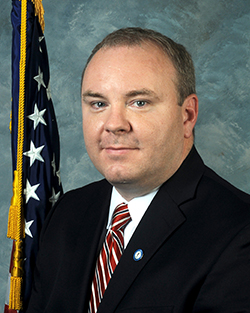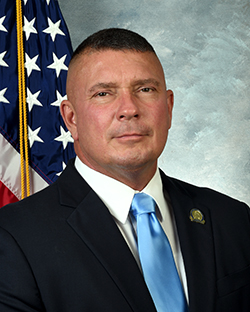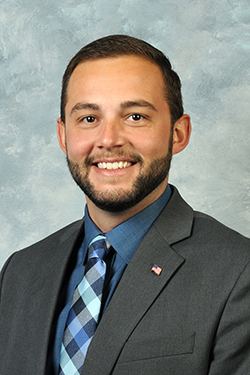In the year of our Lord 2021, Kentucky still doubts the Cannabis Plant!
#thisiskentucky #NOCannabis
For Immediate Release
March 30, 2021
Kentucky General Assembly’s 2021 session ends
FRANKFORT — The Kentucky General Assembly’s 2021 regular session was gaveled to a close this evening, ending a session in which lawmakers approved a state budget for the coming fiscal year and approved numerous other bills that will affect people throughout the state.
Most new laws approved this year will go into effect 90 days from today’s adjournment, except for those that specify a different effective date or include an emergency clause that makes them take effect the instant they become law.
Legislation approved by the 2021 General Assembly includes measures on the following topics:
Abortion. House Bill 91 will allow Kentucky voters to decide next year whether to add the following words to the state constitution: “To protect human life, nothing in this Constitution shall be construed to secure or protect a right to abortion or require the funding of abortion.”
Adoption. House Bill 210 will ensure that employers offer parents adopting a child under the age of 10 the same leave policies that they provide to birth parents.
Asthma. Senate Bill 127 encourages schools to keep bronchodilator rescue inhalers in at least two locations and will require schools with inhalers to have policies and procedures in place regarding their use.
Attorney General. House Bill 2 will give the attorney general greater authority to enforce laws concerning abortion clinics in Kentucky.
Born-alive infants. Senate Bill 9 requires that medically appropriate and reasonable life-saving and life-sustaining medical care and treatment must not be denied to any born-alive infant, including cases in which an attempted abortion results in a live birth.
Billboards. House Bill 328 will re-establish the state’s regulatory authority for roadside billboards after a federal court ruling called the state’s prior regulations into question. It will put Kentucky’s statute back in place with changes intended to ensure its constitutionality.
Capitol security. Senate Bill 227 will require Kentucky State Police to brief the leadership of the General Assembly and the Legislative Research Commission on security matters relating to the State Capitol campus.
Child and new mother fatalities. House Bill 212 will require data in an annual state report on fatalities among children and new mothers to include information on demographics, race, income and geography associated with the fatalities.
Child protection. House Bill 254 will raise the penalty for possession or viewing of matter portraying a sexual performance by a minor under the age of 12 years to a Class C felony. It will also raise the penalty for the distribution of matter portraying a sexual performance of a minor under the age of 12 years to a Class C felony for the first offense and a Class B felony for each subsequent offense.
Civil actions. House Bill 3 will allow civil actions regarding the constitutionality of a Kentucky statute, executive order, administrative regulation or order of any cabinet be filed outside of Franklin County.
Colon cancer. Senate Bill 16 will change the name of Kentucky’s Colon Cancer Screening Program to the Colon Cancer Screening and Prevention Program. A second provision will raise money for the screening program from the sale of special cancer prevention license plates. It will also require the Department for Medicaid Services to release statistics on cancer services related to colorectal cancer.
Commission on Race and Access to Opportunity. Senate Bill 10 will create the Commission on Race and Access to Opportunity. The group will conduct studies and research on issues where disparities may exist in areas including education, child welfare, health care, the economy and the criminal justice system.
Diabetes. House Bill 95 will help those with diabetes by capping cost-sharing requirements for prescription insulin at $30 per 30-day supply in state-regulated health plans.
Driver safety. House Bill 439 will require a vision test renew a driver’s license, starting in 2024.
Education. House Bill 563 will give families more options when making decisions about schools. The bill will allow the use of education opportunity accounts, a type of scholarship, for educational expenses and, for students in some of the state’s largest counties, for private school tuition. Individuals or businesses who donate to organizations that issue education opportunity accounts will be eligible for a tax credit. The measure will also require a board of education to adopt a nonresident pupil policy to govern terms under which the district allows enrollment of nonresident pupils.
Elections. House Bill 574 will make some of the election procedures implemented last year to accommodate voting during the pandemic permanent. The measure will offer Kentuckians three days – including a Saturday – leading up to an election day for early, in-person voting. It will allow county clerks to continue to offer ballot drop boxes for those who do not wish to send their ballots back by mail. It will also allow counties to offer voting centers where any registered voter in the county could vote.
Ethics. Senate Bill 6 will create standards for the ethical conduct of transition team members of all newly elected statewide officeholders. The standards include identifying any team member who is or has been a lobbyist. It will require disclosure of current employment, board member appointments and any non-state sources of money received for their services. It will also prohibit the receipt of nonpublic information that could benefit a transition team member financially.
Firefighters. House Bill 44 will allocate funding to help full-time and volunteer firefighters experiencing post-traumatic stress injuries or disorders receive proper care from licensed mental health professionals.
First responders. Senate Bill 169 will give first responders injured in the line of duty access to more disability benefits. Line of duty or duty-related disability benefits payable to a member of any of the systems administered by the Kentucky Retirement Systems will increase from 25% to 75% of the member’s monthly average pay.
Fish and Wildlife Commission. House Bill 394 will ensure that the state’s Fish and Wildlife Resources Commission will have sole authority to appoint the commissioner of the Department of Fish and Wildlife Resources.
Gaming. Senate Bill 120 will define pari-mutuel wagering in state law in a manner intended to ensure the legality of certain historical horse racing games that are often compared to slot machines.
General Assembly. House Bill 4 will let voters decide next year on a proposed amendment to the Kentucky Constitution that would allow the General Assembly to convene an additional 12 legislative days each year upon a joint proclamation from the Senate President and House Speaker.
Groceries. House Bill 190 will exempt legally permitted food service establishments from any state or local laws and administrative regulations that prohibit the sale of grocery items such as bread, milk, and other staples.
Illegal dumping. Senate Bill 86 will designate 100 percent of a new open dumping fine to be paid to the county where the violation occurred.
Immunizations. Senate Bill 8 would create exemptions from any mandatory immunizations for those who object based on religious beliefs. It also prohibits orders during an epidemic from requiring the immunization of people who object based on conscientiously held beliefs or the written opinion of the person’s physician that immunization would be injurious to the person’s health.
Inmate care. Senate Bill 84 will ban jails, penitentiaries, local and state correctional facilities, residential centers and reentry centers from placing inmates who are pregnant or within the immediate postpartum period in restrictive housing, administrative segregation, or solitary confinement. It will grant an inmate who gives birth 72 hours with a newborn before returning to the correctional facility and will offer six weeks of postpartum care. It also mandates that incarcerated pregnant women have access to social workers and any community-based programs to facilitate the placement and possible reunification of their child.
In-person instruction. House Bill 208 called on public schools to reopen to in-person instruction in some capacity by March 29. The legislation set the expectation that public schools would be open to in-person instruction at least four days a week for the remainder of the 2020-21 academic year. Schools have the option to operate under a hybrid model where students spend part of the week attending in-person classes and the rest from home. The bill requires schools to allow a student to attend in-person classes at least twice a week under the hybrid model. It also limits the remaining amount of nontraditional instruction days school districts are allowed to use.
Kentucky-grown products. Senate Bill 102 will include Asian Carp, paddlefish, or swordfish in the definition of “Kentucky-grown agricultural product.”
Kindergarten. House Bill 382 will make $140 million available for full-day kindergarten in Kentucky schools. The legislation also appropriates money allocated to the state from the American Rescue Plan Act (ARPA) to projects including: $575 million to pay back the interest and principal on the federal unemployment insurance trust fund loan Kentucky took out during the pandemic; $842,400 for Kentucky’s nature preserves; $50,000 for the Kentucky African American Heritage Commission; and $3.3 million to reopen the Northern Kentucky Regional Medical Examiner’s Office. The bill also allocated an additional $50 million for broadband expansion through ARPA funds.
Late fees. House Bill 272 will allow water districts to impose a 10 percent late fee and cut off service for nonpayment of bills. Customers who receive financial assistance for their bills will be exempt.
Livestock. House Bill 229 will make someone guilty of criminal mischief for intentionally or wantonly causing damage to livestock.
Living organ donors. House Bill 75 will prohibit certain insurance coverage determinations based upon the status of an individual as a living organ donor. It will also encourage the Cabinet for Health and Family Services to develop educational materials relating to living organ donation.
Medicaid. Senate Bill 55 will prohibit copays for Medicaid beneficiaries.
Microbreweries. Senate Bill 15 will allow microbreweries to sell and deliver up to 2,500 barrels to any retailer under certain restrictions. It will also require arbitration for some disputes with distributors.
Newborn safety. House Bill 155 will allow the use of a “newborn safety device” when a newborn is being anonymously surrendered by a parent at a participating staffed police station, fire station, or hospital. The device allows a parent surrendering an infant to do so safely using a receptacle that triggers an alarm once a newborn is placed inside so that medical care providers can immediately respond and provide care to the child.
No-knock warrants. Senate Bill 4 will limit and set guidelines for the use of no-knock warrants, which allow officers to enter a premises without notice. Under the legislation, such warrants will be allowed in limited instances if someone was in immediate danger or in other cases, such as those involving violent crimes or terrorism. The measure also specifies it would be perjury if an officer made a false statement in an application for a no-knock warrant.
Operational guidelines. House Bill 1 created a framework for businesses, local governments, schools and nonprofits to operate during COVID-19 restrictions. It suspends interest on unpaid unemployment insurance contributions until next year. It also provides guidelines for noncustodial parental visitation during the state of emergency and will allow each resident at long-term care facilities designate an “essential personal care visitor” that will be exempt from visitor restrictions. (This is one of several new laws being challenged in court by the governor.)
Organ and tissue donation. Senate Bill 12 prohibits a person from selling or purchasing human organs or tissues and prohibits for-profit entities from procuring any eye, cornea, eye tissue, or corneal tissue. The measure is intended to preserve the nonprofit nature of human eye tissue donations.
Oversight and investigations. House Bill 6 will change the name of the Legislative Program Review and Investigations Committee to the Oversight and Investigations Committee. The goal is to make it the main investigative committee in the General Assembly. It will also, for the first time, define the committee’s subpoena powers.
Police standards. Senate Bill 80 will strengthen the police decertification process by expanding the number of acts considered professional wrongdoing. Such acts include unjustified use of excessive or deadly force and engaging in a sexual relationship with a victim. The bill also will require an officer to intervene when another officer is engaging in the use of unlawful and unjustified excessive or deadly force. It will also set up a system for an officer’s automatic decertification under certain circumstances and will prevent an officer from avoiding decertification by resigning before an internal investigation is complete.
Public records. House Bill 312 will limit the ability of people who do not live, work or conduct business in Kentucky to obtain records through the state’s open records law. These restrictions do not apply to out-of-state journalists. The legislation specifies that open records requests can be made via email. It also calls for a standardized form to be developed for open records requests, though it’s not required to be used. It will allow the legislative branch to make final and unappealable decisions regarding open records requests it receives. The bill will allow government agencies up to five days to respond to open records requests.
Recovery Ready Communities. House Bill 7 will establish the Advisory Council for Recovery Ready Communities. The council will be responsible for establishing a “Kentucky Recovery Ready Community Certification Program” to provide a measure of a city’s or county’s substance use disorder recovery programs and to assure citizens and businesses that a city or county is committed to ensuring the availability of high-quality recovery programs in its community.
Sexual abuse. Senate Bill 52 will amend third-degree rape, third-degree sodomy and second-degree sexual abuse statutes so law enforcement officers could be charged with those crimes if they engage in sexual acts with a person under investigation, in custody or under arrest.
Sexual assault. House Bill 472 will extend the statute of limitations for misdemeanor sexual assault offenses against minors from five years to 10. It also extends that window to 10 years on civil claims for the same course of conduct.
State budget. House Bill 192 contains the state spending plan for the upcoming fiscal year, which begins July 1. The plan will mostly continue spending in the manner of the current fiscal year’s budget, with some modifications. It includes some structural changes to the budget, such as putting more money in the rainy day fund and ensuring that funds meant for the state Road Fund aren’t diverted to other matters.
Supplementary education. Senate Bill 128 will allow students to retake or supplement courses that were interrupted by the COVID-19 pandemic during the current school year.
Teacher retirement. House Bill 258 will create a new hybrid tier for the Kentucky Teachers’ Retirement System that contains elements of both defined benefit and defined contribution plans. This change will affect new hires starting in 2022, not current teachers. The bill changes when those teachers could retire. Instead of retiring in 27 years, new hires under this tier will have to work 30 years and be at least 57 to be eligible for retirement.
Telehealth. House Bill 140 will permit telehealth services that were allowed to expand due to COVID-19 pandemic to remain in place even after the pandemic ends.
Theft. House Bill 126 will increase the threshold of felony theft from $500 to $1,000. It will also allow law enforcement to charge members of organized shoplifting rings with a felony if a member steals a total of $1,000 worth of merchandise over 90 days.
Tobacco settlement funds. Senate Bill 3 will move the organization that decides how to spend much of Kentucky’s share of the Tobacco Master Agreement settlement money from the governor’s office to the Department of Agriculture.
To-go alcohol. Senate Bill 67 will allow certain restaurants to sell alcohol, including cocktails, with to-go and delivery orders when purchased with a meal. The Kentucky Alcoholic Beverage Control Board is directed to promulgate regulations for the implementation of the bill.
Unemployment insurance overpayment. Senate Bill 7 will allow the state to waive unemployment insurance overpayment debts that occurred between Jan. 27 and Dec. 31 of last year if the overpayment is not the fault of the recipient and if requiring repayment would be “contrary to equity and good conscience,” according to the legislation.
U.S. Senators. Senate Bill 228 will change the way vacancies are filled for a U.S. senator from Kentucky. The bill will require the governor to choose a replacement from a list of three nominees selected by the state party of the departing senator.
Victim privacy. House Bill 273 will exclude from the open records act photographs or videos that depict a person’s death, killing, rape, sexual assault or abuse. The act is named in honor of Bailey Nicole Holt and Preston Ryan Cope, who were killed in the 2018 Marshall County High School shooting at the age of 15.
Worker safety regulations. House Bill 475 will prohibit the Kentucky Occupational Safety and Health Standards Board or the secretary from adopting or enforcing any occupational safety and health administrative regulation that is more stringent than the corresponding federal provision.
Youth camps. Senate Bill 66 will establish employment and background check standards for staff members working or volunteering at youth camps.
–END–
















